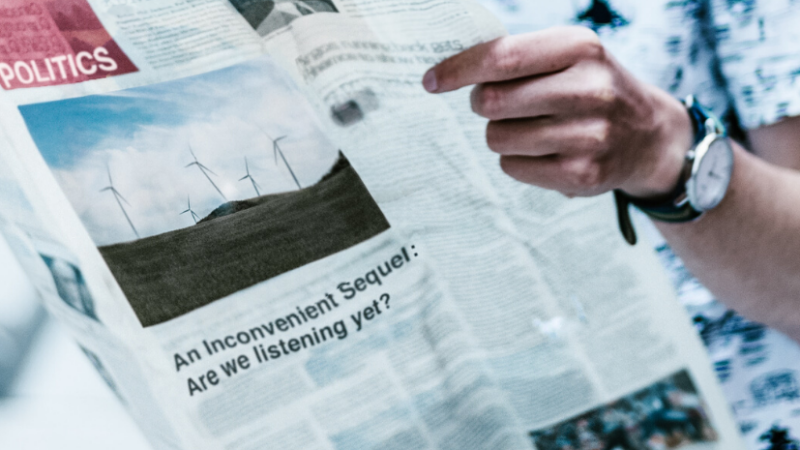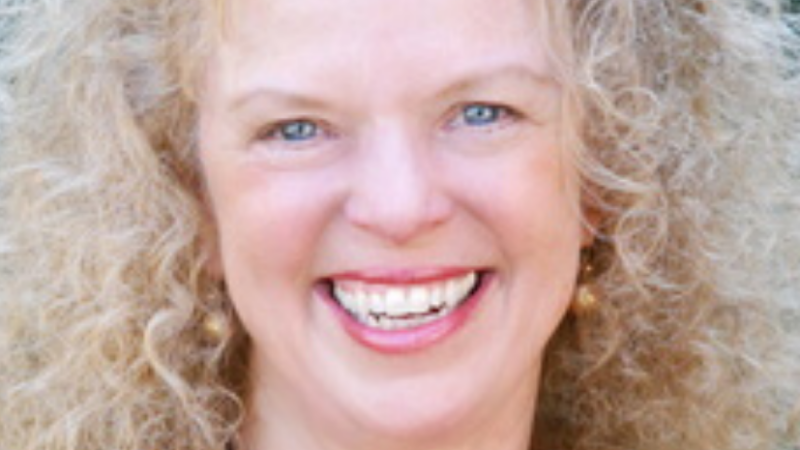-
E117: The Real Work: Letting Go from Within
Michael Singer — October 2, 2025
True spirituality isn’t about mystical experiences or lofty ideals—it’s about honestly facing...
-
Once More: Reflections on Reincarnation and the Gap Between Lives
Tami Simon — September 26, 2025
In this special reflection episode of Insights at the Edge host Tami Simon looks back on her...
-
Honey Tasting Meditation: Build Your Relationship with Sweetness
There is a saying that goes “hurt people hurt people.” I believe this to be true. We have been...
Written by:
Amy Burtaine, Michelle Cassandra Johnson
-
Many Voices, One Journey
The Sounds True Blog
Insights, reflections, and practices from Sounds True teachers, authors, staff, and more. Have a look—to find some inspiration and wisdom for uplifting your day.
Standing Together, and Stepping Up
Written By:
Tami Simon -
The Michael Singer Podcast
Your Highest Intention: Self-Realization
Michael Singer discusses intention—"perhaps the deepest thing we can talk about"—and the path to self-realization.
This Week:
E116: Doing the Best You Can: The Path to Liberation -
Many Voices, One Journey
The Sounds True Blog
Insights, reflections, and practices from Sounds True teachers, authors, staff, and more. Have a look—to find some inspiration and wisdom for uplifting your day.
Take Your Inner Child on Playdates
Written By:
Megan Sherer
600 Podcasts and Counting...
Subscribe to Insights at the Edge to hear all of Tami's interviews (transcripts available, too!), featuring Eckhart Tolle, Caroline Myss, Tara Brach, Jack Kornfield, Adyashanti, and many more.
Most Recent
What Triggers Your Emotional Inflammation?
It’s time to start unraveling the mystery of you by exploring your current state of mind. Think of this as an adventure, a path toward greater self-understanding and self-compassion—and an expanded appreciation of the complexity of you. To get a sense of the modern-world issues that tend to rile or upset you, put on your imaginary miner’s hat and head into the depths of your mind to see what lies below your conscious awareness. (You may want to do this with a trusted friend or partner.)
Consider your true feelings about the following subjects, without letting preconceived ideas about the right or politically correct way to think or feel about these subjects guide you; simply let your real feelings flow out of you in a free-association style.
Have a journal and a piece of paper ready. As you read the following words and phrases, jot down the first three to five words or phrases that come to your mind in response (don’t edit or change what occurs to you instinctively):
- • Climate crises
- • Me Too scandals
- • Human rights abuses (on a grand scale)
- • Political corruption
- • Racial, religious, gender, or political discrimination
- • Environmental threats (toxins in our midst)
- • Volatile financial circumstances
- • Natural disasters (wildfires, floods, storms)
- • International threats
- • Social divisiveness in this country
- • Hate crimes
- • Nuclear weapons threats
- • Gun violence
If other current events are triggering emotional inflammation for you, write them down in your journal or on a piece of paper.
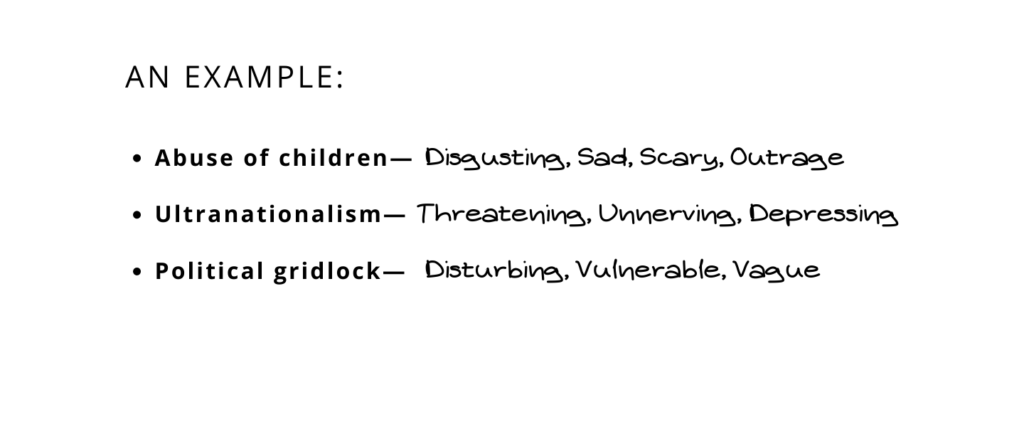
Don’t worry if you feel put on the spot, thought-tied, and unable to come up with the right words to describe how you feel in response to the prompts listed above. Take a deep breath, exhale, and peruse this sample response. Rather than letting this person’s examples sway or influence you, try to use them as inspiration to unlock the floodgates on your true feelings.
Now it’s your turn!
After you’ve completed your list, assign a value to each of these concerns in terms of their potency for you on a scale of 0 to 3 (with 0 being neutral and 3 being intense). Do this quickly so you don’t have too much time to think about it or second-guess your instinctive responses. Once you’ve finished this, place these triggers into a hierarchical list from a potency of 3 to 0, based on how they affect or resonate with you. This will give you a sense of what is likely to get you riled up these days.
If you want to dig a bit deeper, think about the way you responded to the descriptions of certain triggers—that you felt disgusted, violated, sad, and threatened when you thought about Me Too scandals, for example—then consider whether any situations from your past have evoked similar feelings for you. As you may see, emotional injuries or reverberations from the past can make you vulnerable to similar insults and assaults in the present. It’s almost as if you have an emotional ember lying beneath your consciousness, and it’s predisposed to flaring up from time to time. If you hear a single piece of distressing news and find yourself reacting surprisingly strongly to it, think about what else may be crashing around you or whether the news has somehow opened Pandora’s box and exposed you to a deep abyss of other fears and worries. Or it may be that a more superficial emotional injury is on the way to healing but then the scab gets ripped off and the wound bleeds again when another upsetting event occurs.
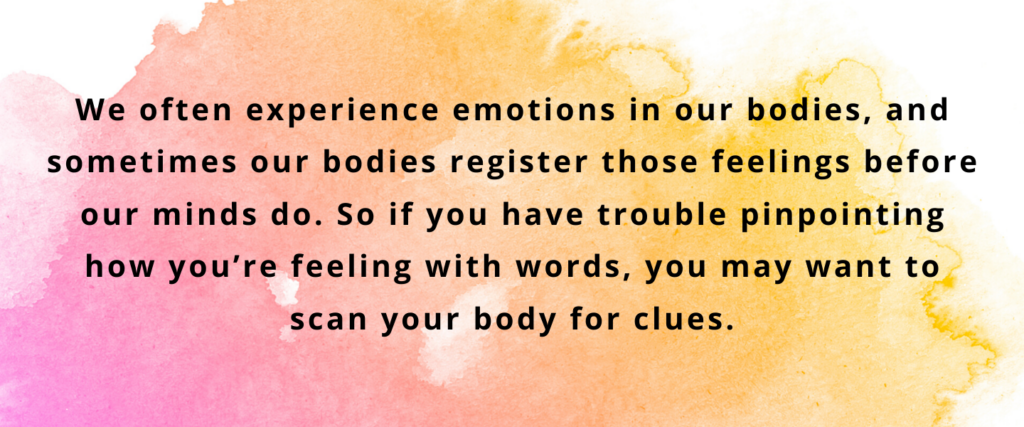
As it happens, we often experience emotions in our bodies, and sometimes our bodies register those feelings before our minds do. So if you have trouble pinpointing how you’re feeling with words, you may want to scan your body for clues. When researchers in Finland performed a series of cross-cultural studies with 701 people from West European and East Asian cultures, they had the participants view various words, stories, movies, or facial expressions, then color specific regions on silhouettes of bodies where they felt activity increasing or decreasing while they viewed each stimulus. This exercise in mapping bodily sensations in response to emotions revealed that basic emotions—including anger, fear, disgust, happiness, sadness, and surprise—were associated with sensations of elevated activity in the upper chest, which likely reflects changes in breathing and heart rate. Increased sensations in the arms and torso were associated with anger. Decreased sensations in the arms and legs corresponded to sadness. And increased sensations in the gut (the digestive system) and throat were found primarily with disgust. The most fascinating revelation was that these effects rang true among people cross-culturally.
So if you have a mental block that makes it difficult to recognize your emotional triggers (which some people do, in a subconscious effort to protect themselves from emotional discomfort), paying attention to your bodily sensations can give you clues about what you’re experiencing. Even if you are highly attuned to your emotional reactions, sometimes they can sneak up on you, and you might experience a particular bodily sensation before you are aware of the actual trigger or your response to it. That’s because we all have blind spots to reflexive emotional states we’re susceptible to experiencing.
This is an excerpt from Emotional Inflammation: Discover Your Triggers and Reclaim Your Equilibrium During Anxious Times by Lise Van Susteren, MD, and Stacey Colino.
Buy your copy of Emotional Inflammation at your favorite bookseller!
Sounds True | Amazon | Barnes & Noble | Bookshop
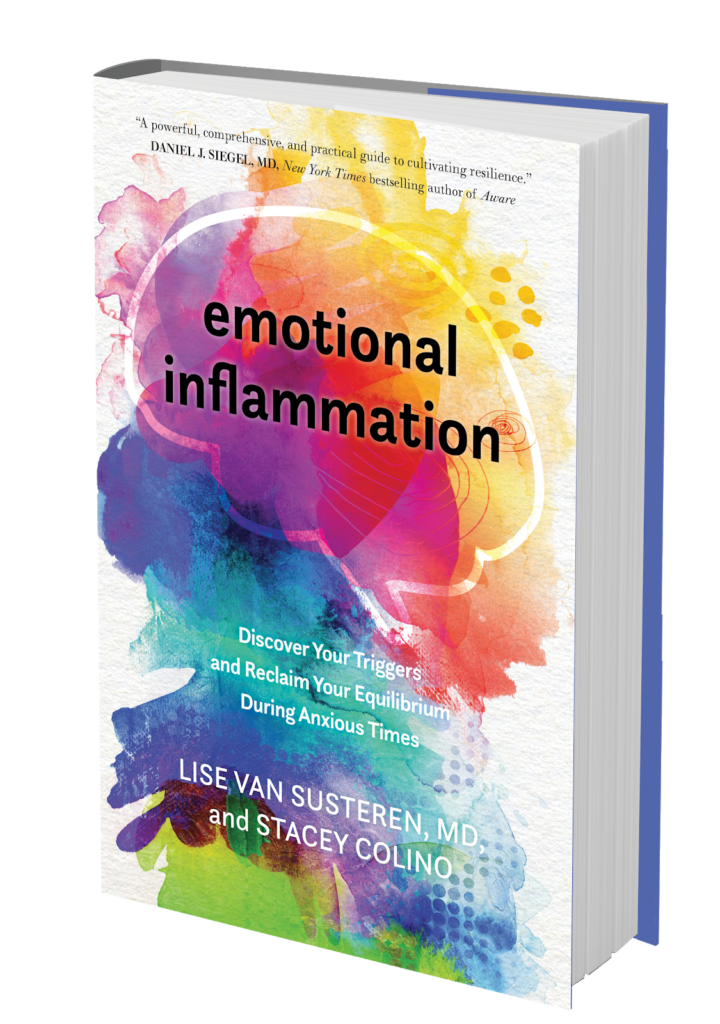
Donna Eden: Uplifting Energy
Tami Simon speaks with Donna Eden, a renowned energy medicine expert who has taught throughout the US, Australia, New Zealand, Europe, and South America. Along with her partner, Dr. David Feinstein, Donna is author of the books Energy Medicine and Energy Medicine for Women. With Sounds True she has produced the multimedia program The Energy Medicine Kit. In this episode, Tami speaks with Donna about her experiences as someone who both sees energy and has healed herself from serious medical challenges. Donna also shares two energy practices: a technique to evolve our fight-flight-or-freeze response, and another for opening with total trust to the energy of the heavens. (1 hour, 3 minutes)
A Doctor’s Simple Tips on How to Get Better Sleep
Thanks to groundbreaking research, we have recently learned that every cell has its own timekeeper that can be thought of as a local clock. Deep within the brain, in the hypothalamus, lies a master clock that regulates all the local clocks, making sure that each one is set to the same time. This complex, coordinated process is in sync with the alternating cycles of day and night and with all the degrees of changing light that occur in a 24-hour period as Earth rotates on its axis. Called the “circadian rhythm”—from the Latin words circa, which means “going around,” and diem, meaning “day”—this internal process regulates the human body’s sleep-wake cycle, among many other functions.
The master clock (think of it as circadian rhythm central) sends hormonal and nerve signals throughout the body, synchronizing the cells’ clocks to the day-night, light-dark cycle of life. On a continuous basis, the master clock can determine what time it is based on messages from photoreceptor cells in the retina that register light conditions outside and report these to the brain via specialized pathways.

Meanwhile, the cellular clocks keep local time, making sure that various activities locally are timed right and are appropriately coordinated with other cells and organs. This is why, for example, key enzymes are produced at certain times, blood pressure and body temperature are controlled, hormones are secreted, the gut microbiome is populated with the right balance of bacteria, and gut motility is appropriate for the hour.
Living in harmony with the way we have evolved brings physiological and emotional balance, creating a good fit between our bodies and minds, between what we’re doing and how we’re designed to function. Honoring our body’s natural rhythms helps stabilize our mood, become more resistant to stress, feel less physical pain, and generally feel and function better physically and mentally. It’s an essential step in cooling and calming emotional inflammation.
The following are some ways you can adjust your habits so that they support your body’s inherent rhythms:
- Put yourself on a sleep schedule. Establish a regular sleep-wake schedule so that you go to bed at approximately the same time each night and wake up at the same time each morning. It’s fine to vary your bedtime by an hour or two occasionally, but don’t sleep in more than an extra hour on the weekends (unless you’re sick); otherwise, you will end up disrupting your sleep pattern for the next night.
- Identify your slumber sweet spot. Most adults need seven to nine hours of sleep per night to feel and function at their best. Once you figure out how much you need, determine what time you need to get up in the morning and work backward to set an appropriate bedtime; or, you can identify what time of night you typically feel sleepy and then set a wake-up time accordingly.
- Brighten your mornings. When you get up in the morning, expose yourself to bright, natural light to stimulate alertness, enhance your mood, and help calibrate your circadian rhythms. Take a brisk walk outside or have breakfast in a sunny spot. If you struggle to reset your internal clock to the “awake” setting in the morning, consider buying a commercial light box that emits 10,000 lux, which mimics a bright, sunny day. Sitting in front of such a light box for 30 minutes in the morning, perhaps while you have breakfast or read the newspaper or newsfeeds, has been found to stimulate alertness and improve mood. Alternatively, you could opt for a desk-lamp-style light box for your desk at work.
- Adjust your indoor lighting. Fascinating research has found that office workers who are exposed to greater amounts of light in the morning fall asleep more quickly at night. They also have better sleep quality and better moods, including less depression and stress, than those who are exposed to low light in the morning.
- Darken your evenings. There is another good reason to make sure that your bedroom (or wherever you sleep) is dark: When people are exposed to light during the night, their total daily melatonin production is suppressed dramatically, by as much as 50 percent. In other words, that nighttime light exposure throws the body’s 24-hour hormone production schedule off-kilter. It’s also wise to install a dimmer switch on the overhead light in the bathroom—or use a dim night-light—so that bright vanity lights don’t stimulate your senses and alertness while you’re taking care of bathroom business before hitting the sack or if you get up during the night.
Ultimately, honoring your body’s natural rhythms requires taking back control of your nights and days. It’s about putting time on your side and making conscious choices about the way you want to live so that you can restore your internal equilibrium, physiologically and psychologically.
Yes, changing your behavior requires giving up the patterns you chose, consciously or not, in the past, and making the switch does take some effort and resolve. But if you make it a priority to stop upsetting your body’s internal rhythms and start living in sync with your body’s inherent needs, the payoffs will be well worth the effort. Your mood is likely to end up on a more even keel, and your energy will increase. Your physical health will probably improve and your emotional equilibrium will, too. Think of it this way: By respecting your body’s rhythms and doing whatever you can to maintain their regularity, you’ll be resetting your internal emotional thermostat, which will improve the way you react to and deal with the stresses and strains that are unavoidable in our modern world.
This is an excerpt from Emotional Inflammation: Discover Your Triggers and Reclaim Your Equilibrium During Anxious Times by Lise Van Susteren, MD, and Stacey Colino.
A Music Playlist for Better Sleep
To help you achieve the best night of rest, we recommend falling asleep to this relaxing music playlist, Music for Better Sleep, available through Sounds True on Spotify.

Lise Van Susteren, MD, previously served as a clinical professor of psychiatry at Georgetown University. She is a go-to commentator about anxiety and trauma for television (including CNN, Good Morning America, NBC, VOA, and Fox News), radio (NPR, Minnesota Public Radio, and others), print media (including the Washington Post, the Wall Street Journal, Newsweek, the Huffington Post, and CQ Magazine), and online outlets (such as Live Science, U.S. News & World Report, Global Health NOW, and many others).
As a thought leader and activist, Dr. Van Susteren addresses issues related to trauma and emotional inflammation through her roles at the Earth Day Network and Physicians for Social Responsibility. She is considered an expert in the psychological effects of climate change.
Stacey Colino is an award-winning writer specializing in health and psychology. In addition to her work as a book collaborator, she is a regular contributor to U.S. News & World Report and AARP.org. Her work has appeared in the Washington Post Health section, Newsweek, Parade, Cosmopolitan, Real Simple, Health, Prevention, Woman’s Day, Harper’s Bazaar, Parents, and Good Housekeeping, among other magazines and newspapers.
Buy your copy of Emotional Inflammation at your favorite bookseller!
Sounds True | Amazon | Barnes & Noble | Bookshop
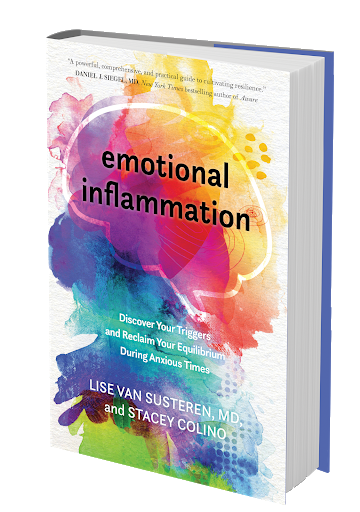
Customer Favorites
The courage to be vulnerable – with Brené Brown
Dr. Brené Brown, a research professor at the University of Houston’s graduate college of social work, has spent the past decade studying vulnerability, courage, authenticity, and shame. Brené is the author of the #1 New York Times bestseller Daring Greatly, and with Sounds True she has created the audio learning course The Power of Vulnerability: Teachings on Authenticity, Courage, and Connection. In this episode of Insights at the Edge, Tami speaks with Brené about the cultural myth that equates vulnerability as weakness instead of recognizing it as the greatest measure of our courage. They also examine Brené’s research about the qualities that allow a person to live in a wholehearted way.
We hope you enjoy this audio session with Brené Brown! You can stream or download the recording at no cost here – or download the transcript if you’d like to read the discussion.

The Art of Subtraction
Father Richard Rohr is a Franciscan priest and prolific author. With Sounds True, he has released the six-part audio learning program, The Art of Letting Go: Living the Wisdom of Saint Francis, in which Richard explores the life and teachings of this beloved figure, and offers ways we can incorporate his wisdom into our lives. In this episode of Insights at the Edge, Father Rohr and Tami Simon discuss the relevance of Saint Francis in today’s world, what he calls the “spirituality of subtraction,” Jesus’ teachings on nonduality, and what genuine contemplation might look like. (52 minutes)
Shining Bright Without Burning Out
Mara Bishop is a shamanic practitioner, intuitive consultant, teacher, author, and artist. In private practice, she uses her Personal Evolution Counseling™ method to provide an integrated approach to spiritual healing, personal growth, and emotional well-being. She is the author of the books Shamanism for Every Day: 365 Journeys and Inner Divinity: Crafting Your Life with Sacred Intelligence, and, with Sounds True, she is the author of the audio learning program Shining Bright Without Burning Out: Spiritual Tools for Creating Healthy Energetic Boundaries in an Overconnected World.
In this podcast, Mara speaks with Sounds True’s founder, Tami Simon, about how in today’s world we can learn to value our sensitivity instead of feeling overwhelmed and exhausted. Mara and Tami also discuss shamanism as a path of direct revelation, accessing non-ordinary consciousness for insight and healing, the three phases of creating healthy energetic boundaries, the difference between “just plain stress” and burnout, discovering your energy personality archetypes, understanding your energy ecosystems and how they interact, working on yourself and bringing light to the shadow aspects of your personality, the difference between compassion and empathy, energetic cleansing methods, the paradox of “one and all one,” Mara’s concept of “powering on” to amplify and shine our inner light, how our world has become “overconnected” and how to avoid the burnout this can create, the shamanic practitioner as someone who can “see through the eyes of the heart,” and more.

